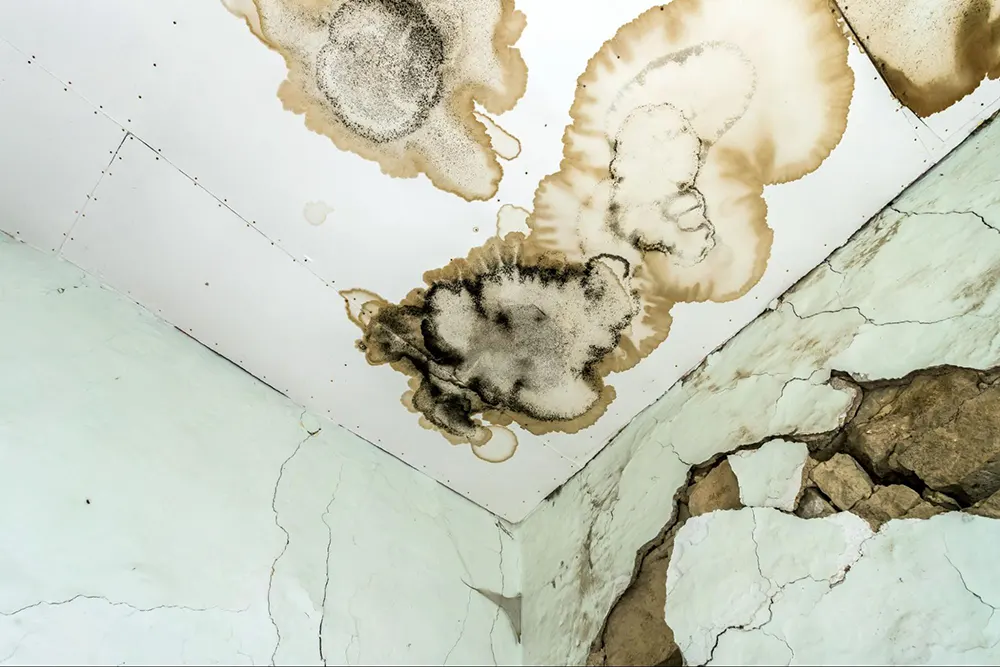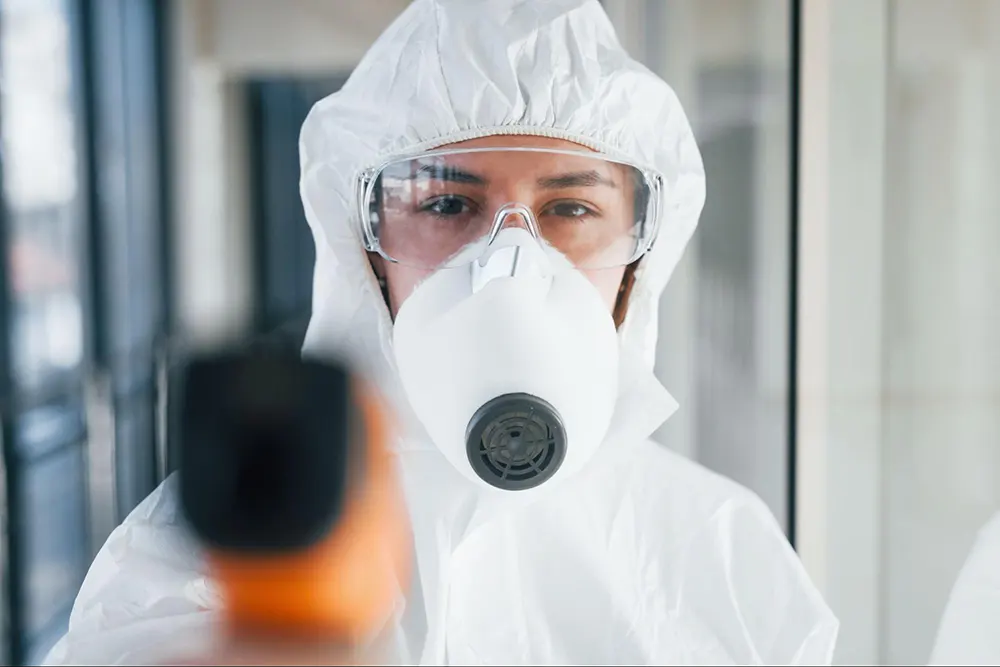“Mold in an apartment is more than a nuisance—it’s a threat to your health, your lease, and your safety.” – bMold Removal Experts
Whether you’re the one living with it, managing the property, or trying to sell or sublet—mold doesn’t just disappear. It creeps behind drywall, inside vents, under bathroom floors, and into legal conversations you never planned on having. For many in New York, it starts with a smell. Then symptoms. Then silence from the landlord.
At Mold Removal Experts, we exist for this moment—when someone finally says: “This can’t go on.”
We’re a .org educational initiative powered by Zavza Seal LLC, offering expert mold remediation, waterproofing, dehumidification systems, and drainage services to residential and commercial properties across Long Island, Brooklyn, Queens, and The Bronx. Our mission: protect homes, protect people, and make sure no one gets left in the dark about mold again.
Worried About Mold? Request Your Free Apartment Mold Risk Assessment Today
Apartment Mold Health Issues
Mold exposure in apartments isn’t just unpleasant—it’s a serious health hazard. From persistent allergies to more severe respiratory conditions, the effects of mold can be life-altering, especially for children, seniors, and anyone with asthma or a weakened immune system.
Common health symptoms linked to mold in apartments include:
- Chronic coughing, sneezing, or throat irritation
- Sinus congestion, headaches, and fatigue
- Skin rashes or red, itchy eyes
- Worsening asthma or difficulty breathing indoors
- Recurring cold-like symptoms that improve when you leave the apartment
In apartments with hidden mold, symptoms often get misdiagnosed as seasonal allergies, stress, or unrelated illness. But mold produces spores and, in some cases, mycotoxins—tiny particles that can trigger inflammation and long-term respiratory damage.
Long-Term Health Risks from Mold Exposure:
- Development of asthma in children
- Fungal infections in the lungs (especially in immunocompromised individuals)
- Potential neurological effects from toxic mold (black mold)
- Increased risk of respiratory illness in low-ventilated or poorly maintained units
Think You’re Just Sensitive? Many renters ignore the signs until a serious diagnosis forces them to act. Don’t wait. The earlier mold is identified and removed, the better your chances of avoiding long-term harm.
Call for a Free Mold Risk Assessment Today—Your Health Depends on It
What Causes Mold in Apartments (And Why It Keeps Coming Back)
Mold in apartments often stems from chronic moisture problems—most of which are preventable if caught early. You can repaint. You can replace a section of drywall. But if the moisture problem hasn’t been solved, mold will always come back. And in NYC’s aging buildings and high-humidity conditions, it doesn’t take long.
Here are the most common causes of persistent apartment mold problems:
In the Bathroom
- Leaky pipes or fixtures under sinks and tubs
- Poor ventilation after showers
- Cracked grout or tile letting water into subfloors
In the Kitchen
- Leaking dishwashers, under-sink traps, or fridge lines
- Steam buildup from cooking in windowless kitchens
Inside Air Vents and HVAC Units
- Condensation from poorly insulated ducts
- Dirty filters or clogged drains backing moisture into airflow
- Mold spores blown throughout apartment via central air
Around Windows and Walls
- Inadequate caulking letting in rainwater
- High indoor humidity condensing on cold glass
- Water seeping in from above in multi-floor buildings
And then there’s the hidden threat: basement units or slab-built apartments that sit right on top of high water tables—common across Queens, Brooklyn, and Long Island. Once water finds a path, it doesn’t ask for permission.

Signs Your Apartment Has Mold
Not all mold is visible—but these early red flags can help you spot a serious problem.
Mold hides. It creeps into the overlooked corners and the places people rarely inspect. Knowing what to look for can save your health—and your lease.
Signs your apartment has mold often include:
- Musty, damp, or earthy smells that worsen after rain or showers
- Mold on apartment ceiling, especially in bathrooms or top-floor units
- Mold under carpet in apartment, especially near exterior walls or around radiators
- Discolored walls or bubbling paint near plumbing lines
- Increased allergy or respiratory issues when indoors
- Rusted fixtures or warped flooring that suggest water damage
- Black, green, or white specks around vents, baseboards, or windows
Don’t Ignore the Signs—Book a Mold Inspection With a Certified Specialist Today
How to Test for Mold in an Apartment
Testing for mold in an apartment isn’t just for confirmation—it’s your best defense for legal, health, and property protection. When you’re unsure, testing gives you leverage. If you’re a renter dealing with a stubborn landlord, or an owner prepping a unit for sale, documentation matters.
Here’s how to get mold test in apartment settings done right:
- DIY Kits: Inexpensive, but often inconclusive or improperly used
- Professional Testing: Includes air sampling, surface swabs, humidity checks, and infrared thermal imaging to spot hidden growth
- Moisture Meters: Identify damp spots behind walls or under flooring
- Full Inspection Reports: Useful for lease disputes, disclosures, or post-remediation clearance
Wondering can you test the house for mold the same way? Yes—and the same experts who handle single-family homes test apartments too.
Get Peace of Mind—Schedule a Professional Apartment Mold Test Today
Apartment Mold Law and Tenant Rights
Tenants across the U.S.—and especially in New York—have clear legal rights when it comes to mold in their apartment. Mold isn’t just a maintenance issue—it’s a legal one. And if your landlord ignores the signs, you may have the right to take action.
Here’s what you need to know about mold in apartment law:
1. Landlord Responsibilities
Most states (including NY) require landlords to provide habitable housing. That includes fixing leaks and remediating known mold promptly.
2. My Apartment Has Mold. What Are My Rights?
You have the right to request an inspection. You can file complaints with local housing departments if ignored.
3. Mold in My Apartment—Can I Sue?
Yes, if you can prove the landlord knew or failed to act. You may be entitled to compensation for medical bills, lost belongings, or relocation costs.
4. Apartment Won’t Fix Mold—Can I Break My Lease?
In many cases, yes. Local laws vary, but unsafe living conditions often justify early termination.
Pro Tip: Keep written records, take photos, and call a certified inspector.
Apartment Mold Laws in Long Island
New York State law supports tenants’ rights when it comes to safe and habitable housing—and Long Island is no exception. If you’re living with mold or water damage, or your landlord has failed to act, here’s what you need to know:
- Landlords Must Maintain Safe Living Conditions: Under New York’s Warranty of Habitability, landlords are required to address mold promptly. This includes resolving leaks and structural issues that lead to mold growth.
- Tenants Can File Local Complaints: In Suffolk and Nassau counties, tenants can report mold problems to their local housing departments, which can issue violations or require remediation.
- Legal Action is Possible: If mold makes your home unsafe and your landlord refuses to act, you may be able to take legal action or break your lease under tenant protection laws.
- Health Concerns are Taken Seriously: If mold is making you sick, it’s not just a comfort issue—it’s a public health concern. Tenants can seek emergency inspections or consult housing advocates.
Explore Our Mold Remediation Services Here!
Who to Call and What to Do If Your Apartment Has Mold
When you discover mold, fast action matters—here’s how to respond the right way.
Whether you rent or own, this is what to do if your apartment has mold:
- Document Everything: Take detailed photos, note smells, log symptoms.
- Notify the Landlord or Property Manager in Writing: Include dates and all findings.
- Call a Certified Mold Specialist: Know your exposure level and what it will take to remediate.
- Stay Safe: If mold is severe or affecting your health, relocate temporarily.
- Don’t Wait for Repairs: If the landlord won’t act, city health departments or attorneys may need to step in.
Whether it’s mold in new apartment move-ins or mold in rented apartment kitchens, the key is to act now—not when it’s worse.
Stop Mold Before It Spreads—Talk to a Mold Remediation Specialist Now
Apartment Mold Prevention: How to Keep Mold from Coming Back
Even after treatment, mold can return—unless you address the conditions that allow it to grow.
Here’s how to prevent mold in NYC apartments and beyond:
- Use Dehumidification Systems: Maintain indoor humidity below 50%
- Fix Leaks Fast: Kitchen, bathroom, and roof leaks must be addressed quickly
- Improve Airflow: Use exhaust fans in bathrooms and kitchens
- Seal Cracks and Gaps: Prevent moisture intrusion from outside
- Upgrade Waterproofing: Especially in basement-level or slab-on-grade apartments
- ]===
- Consider Encapsulation: For crawl spaces or unfinished lower units
At Mold Removal Experts, we install dehumidifiers, interior drainage systems, and moisture-blocking solutions that keep apartments mold-free for the long haul.
Protect Your Apartment Permanently—Ask About Our Dehumidification and Waterproofing Packages
Final Thoughts: Mold in an Apartment
Mold in an apartment is more than a surface-level issue—it’s a health, legal, and structural threat that requires expert care.
From tenants worried about safety to landlords concerned about liability, one thing is clear—ignoring mold always costs more than preventing it. And in Long Island, Queens, Brooklyn, and The Bronx, old buildings and wet seasons only make things worse.
At Mold Removal Experts, we don’t just clean surfaces—we fix the source, install lasting systems, and help people reclaim their spaces with confidence.
Your Health Matters—Request a No-Cost Apartment Mold Consultation Today

